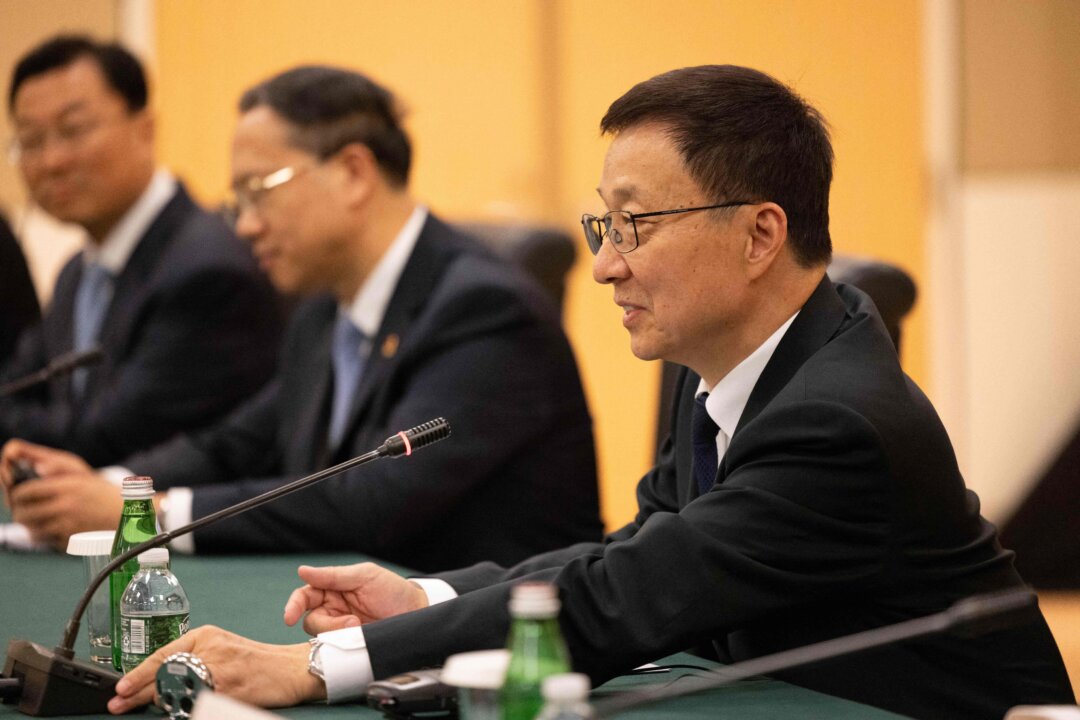Trump had invited the communist party leader to attend his inauguration next week.
Chinese communist regime leader Xi Jinping has chosen not to attend U.S. President-elect Donald Trump’s inauguration next week and will instead send deputy leader Han Zheng to Washington as his special representative, Beijing’s foreign ministry said in a Jan. 17 statement.
Trump extended an invitation to Xi to attend the Jan. 20 inauguration ceremony, incoming White House press secretary Karoline Leavitt said last month.
Yeh Yao-Yuan, who teaches international relations at the University of St. Thomas in Houston, said Xi turned down the invitation because he was unprepared for a face-to-face meeting with Trump.
Typically, before engaging with a leader from another country, Xi’s diplomatic team ensures that all major issues are addressed in advance to avoid surprises, according to Yeh. With limited preparation time before Trump’s inauguration, Xi “would be under pressure and dare not come,” Yeh told The Epoch Times.
Security considerations also weigh heavily on Xi’s decisions, especially during what experts describe as a power struggle within the upper echelons of the Chinese Communist Party (CCP), according to independent Chinese commentator Cai Shenkun.
“Xi Jinping prioritizes [his] safety above all else,” Cai told The Epoch Times, pointing to Xi’s fear of potential assassination attempts during his foreign trip. “A public event like this, packed with tens of thousands of attendees, makes it even less likely that he would show up,” Cai said.Despite Xi’s absence, Cai believes the Chinese leader is “eager to restore engagement” with the United States because he knows Trump will step up pressure against the CCP.
Trump has signaled intentions to impose hefty tariffs on Chinese goods once he returns to office. That includes as much as 60 percent tariffs on all Chinese imports and an additional 10 percent for the CCP’s role in illegal immigration and the illicit fentanyl crisis in the United States.
The tariff threats add pressure to China’s exports, a key driver of the world’s second-largest economy, which is already grappling with a long list of challenges such as a real estate crisis, rising local government debt, and weak domestic consumption.
In light of economic woes and pressure from its major trading partners, Xi may need to soften Beijing’s stance and “offer an olive branch” to Trump, according to Cai.
As a leader who aims to project strength on the global stage, “attending the inauguration ceremony of the president of the United States could signal that he acknowledges he holds the lower hand,” Cai said. “Of course, he doesn’t want to do so.”
It remains to be seen whether the Chinese deputy leader will meet with Trump or any senior administration officials during his upcoming visit to Washington. If meetings do occur, analysts suggest that sending Han—a figure with a largely nominal role—indicates that little will be accomplished from these engagements.
The 69-year-old Han retired from the Politburo Standing Committee, the CCP’s top decision-making body, and the broader Central Committee at the party’s congress in 2022.
The United States and communist China have remained at odds over various issues, ranging from trade disputes—such as the U.S. restrictions on Chinese companies’ access to advanced technology and Beijing’s non-market trade policies—to regional conflicts, such as the status of Taiwan and the conflict between Ukraine and Russia.
Xi will travel to Russia in 2025, according to Russia’s state-run RIA news agency.
“As for concrete bilateral events, I can say that the appropriate plans are actively being drawn up,” Moscow’s ambassador to Beijing, Igor Morgulov, told RIA in December 2024.
Reuters and Luo Ya contributed to this report.

